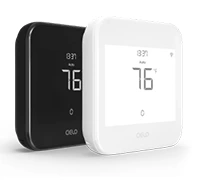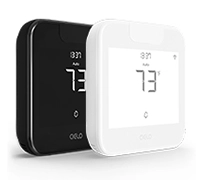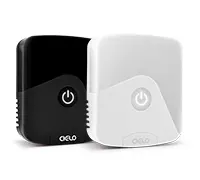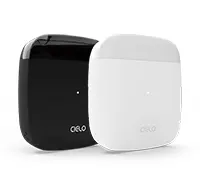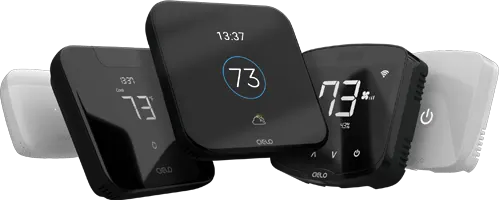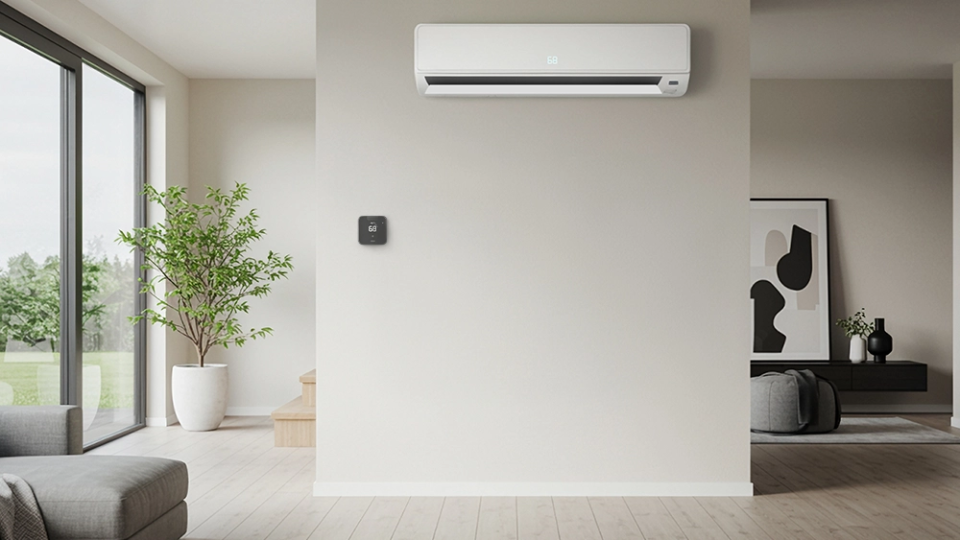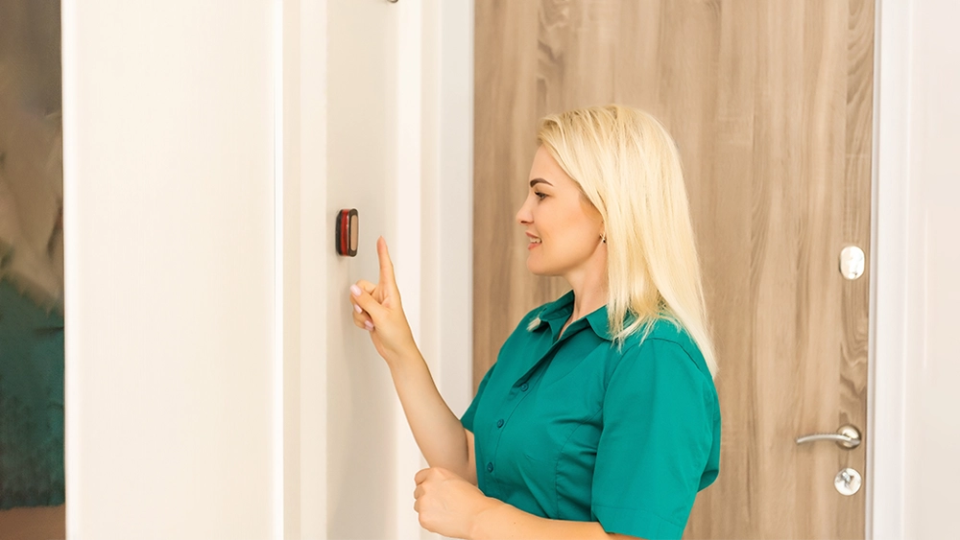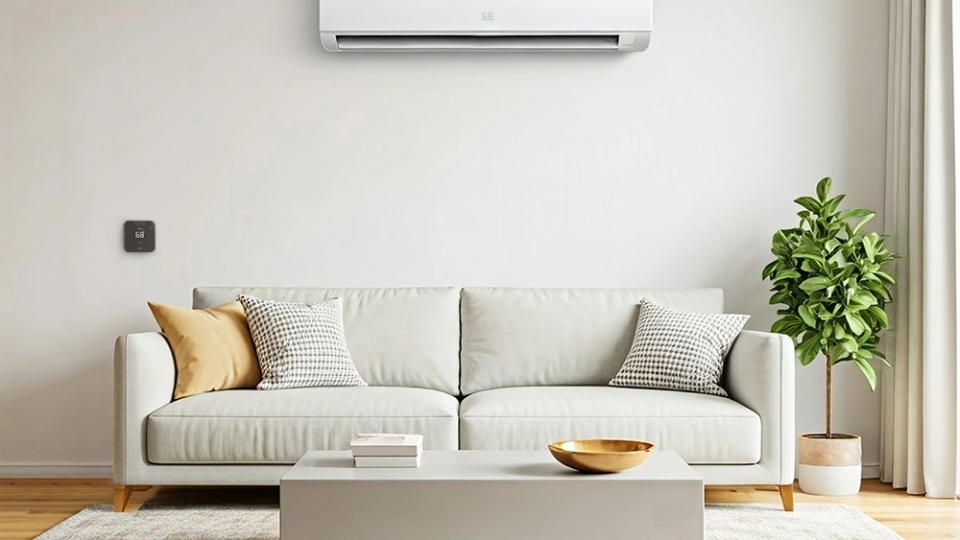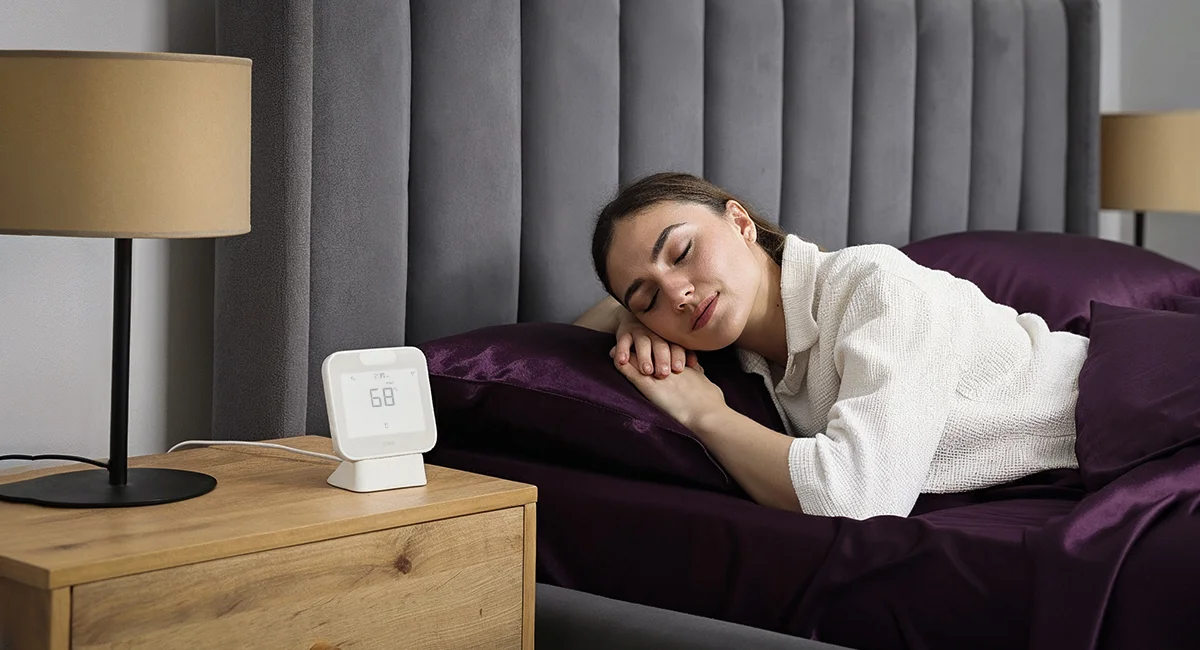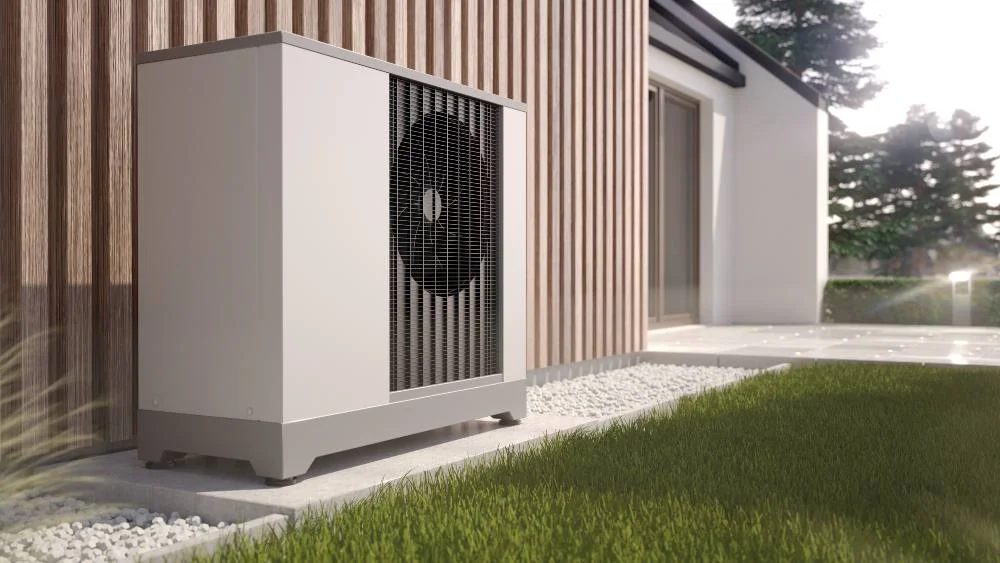
Key Takeaways
- Heat pumps operate by moving heat between the indoor and outdoor spaces.
- In summer, it takes heat from your house and releases it outdoors while the resultant cool air is circulated inside.
- Modern heat pumps with variable-speed compressors provide consistent cooling even during a heat wave.
When it comes to achieving an ideal home climate, heat pumps offer a versatile and eco-friendly solution. While commonly recognized for their heating capabilities, they are also excellent at cooling your home and managing indoor humidity during hot and humid weather.
This blog will explore how heat pumps actually cool your home, how effective they are during heat waves, and offer tips on getting the most out of this HVAC system. It will also address some common FAQs related to heat pump cooling.
How Does a Heat Pump Cool Your Home?
Heat pumps operate by moving heat between the indoor and outdoor environments using electricity, maintaining a comfortable climate year-round. Air-sourced heat pumps are most commonly used in residential settings. There are two main types of air-sourced heat pumps: ducted and ductless heat pumps. The ducted air source heat pump works like a central HVAC system, where it distributes warm or cool air through ductwork and vents in your home. Meanwhile, a ductless system doesn’t require ducts and delivers air directly where it is required through indoor air handlers. Other types of heat pumps are geothermal heat pumps that take heat from the ground and water-source heat pumps that extract heat from the water.
These systems consist of two units: an indoor unit and an outdoor unit. A reversing valve located near the compressor allows the heat pump to switch between heating and cooling modes.
During the summer, it takes the warm air from inside your house and pulls it into the system. Inside the heat pump, there’s a special fluid called refrigerant that takes the heat from the air. The refrigerant then changes from a liquid to a gas as it absorbs the heat. The warm, gaseous refrigerant is then pumped to the outdoor unit. There, it releases the heat outside. The refrigerant cools down and turns back into a liquid. Cold air is distributed in your home using a network of ducts and vents.
How Effective Are Heat Pumps in Extreme Heat?
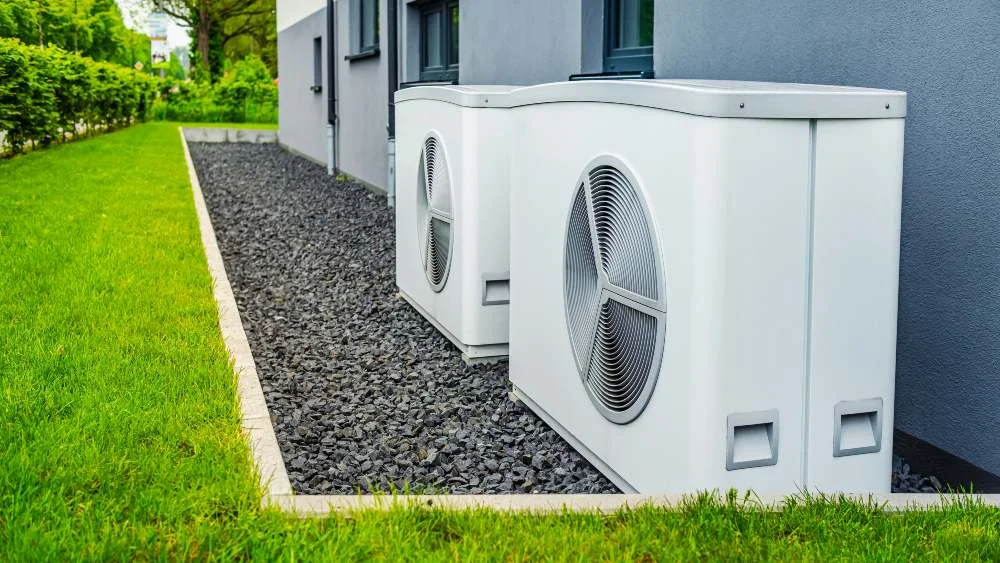
Air conditioning units often struggle to perform reliably during severe heat waves, even when operating at 80% efficiency. They have either two-stage compressors, which only have two energy levels, or single-stage compressors that simply turn on and off. Due to this, they can’t adjust their performance as finely, which results in energy wastage.
In contrast, most modern heat pumps excel at cooling efficiently even during heat waves, thanks to their variable-speed compressors. These compressors adjust their speed precisely to match your home’s cooling needs, ensuring that the heat pump effectively reaches and maintains your desired temperature. Additionally, they are more energy efficient because they deliver a greater volume of cool air compared to the energy they consume to operate.
Heat pumps are designed to function effectively across a broad operating range, from -22F to 115F. This broad operating range ensures their reliability and efficiency even when summer temperatures soar above 100F.
According to a study by the Rocky Mountain Institute conducted in Seattle during a 3-day heat wave in June 2021, heat pumps used less energy and maintained more stable temperatures compared to standard and high-capacity ACs. The study found that heat pumps consistently achieved the setpoint temperature of 75F while consuming up to 18.6% less energy than high-capacity AC units.
Heat pumps also excel at dehumidifying the air without completely drying it out. In fact, some models dehumidify even more efficiently than traditional air conditioners. This is particularly beneficial in regions where high humidity worsens the heat, such as in Florida, Miami, and Orlando.
Related: When Does Summer Start In Florida & How to Stay Cool?
How to Make the Most of Your Heat Pump
Here’s how you can make your heat pump work better:
-
Use Smart Thermostats
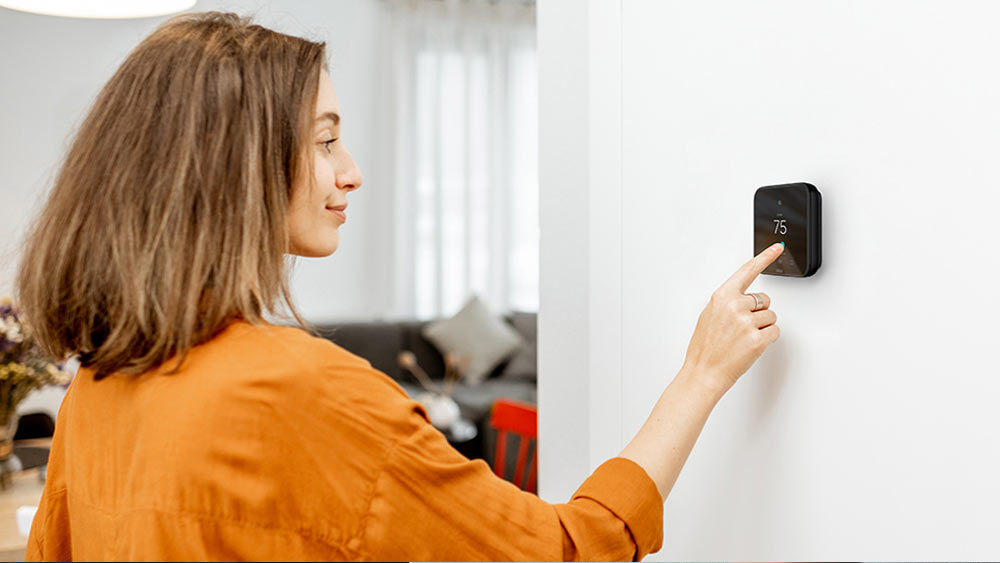
To optimize your heat pump’s performance, consider integrating it with a smart thermostat for central HVAC systems or a smart mini-split thermostat for ductless heat pumps. These smart devices allow you to manage your home’s climate remotely via your smartphone, providing flexibility and control no matter where you are.
Your best choice to make any mini-split, window,
or portable AC smart. Enhance your comfort and savings.
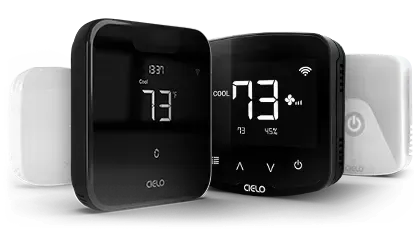
Smart thermostats offer features like customized scheduling, enabling you to align your home’s heating and cooling patterns with your daily routine. Once set, the thermostat maintains your preferred indoor conditions, ensuring comfort throughout the day. You can also program your smart thermostat to lower the temperature when you are home and raise it slightly when you’re away or asleep to save on cooling costs.
Here’s how you can easily switch from AC to heat or vice versa using smart thermostats.
Equip your HVAC system with smart features and achieve the perfect balance between comfort & savings.
Learn more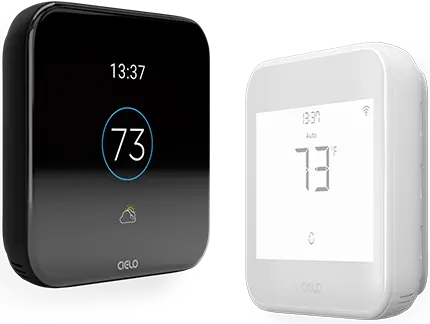
-
Focus on Home Insulation
Air leaks are a common issue that can lead to 20% to 30% energy loss. This negatively impacts your heat pump performance by forcing it to work harder. Upgrading your home insulation addresses these leaks and can substantially improve your heat pump’s efficiency and longevity.
-
Opt for High-Efficiency Heat Pumps
When choosing a heat pump, it’s important to look at its Seasonal Energy Efficiency Ratio (SEER) rating. A higher SEER rating indicates greater efficiency, meaning the heat pump delivers more cooling output for each unit of electricity it uses. This translates to better operation and lower energy costs.
-
Keep Up With Heat Pump Maintenance
Regular heat pump maintenance is essential for ensuring that your system runs smoothly. This includes cleaning or replacing filters, checking refrigerant levels, and inspecting the system for any issues. These can enhance your unit’s efficiency, extend its lifespan, and help prevent potential heat pump malfunctions.
The Takeaway
Using heat pumps for cooling and heating is an excellent choice for maintaining a comfortable indoor climate throughout the year. When it comes to using them in warm weather, they offer superior cooling capabilities and also do a great job of reducing humidity levels. Their ability to operate effectively even during extreme heat and their energy-saving advantages make them a standout option in climate control systems. To get the most out of your heat pump, consider integrating it with a smart thermostat to enhance control and efficiency. Regular maintenance, proper home insulation, and choosing a model with a high SEER will also contribute to optimal performance.
Frequently Asked Questions
Can a Heat Pump Replace an Air Conditioner?
Yes, a heat pump can fully replace your old air conditioner, offering more efficient and quieter cooling. Additionally, it can serve as a replacement for your heating system and even eliminate the need for a separate dehumidifier.
How Long Should a Heat Pump Run in the Summer?
On particularly hot days, heat pumps may run longer to maintain a comfortable indoor temperature. The operation of a heat pump is influenced by several factors, such as outdoor temperature, desired indoor temperature, and home insulation. Just make sure your heat pump isn’t running continuously without any breaks. If it operates nonstop, it may need to be checked by a professional.
Are Heat Pumps Eligible for Rebates?
Many power utilities and service companies offer rebates or incentives to promote the adoption of energy-efficient HVAC systems. These rebates help reduce the upfront cost of purchasing and installing a heat pump. Eligibility for these incentives typically depends on factors such as the heat pump efficiency rating, installation specifics, and the requirements of the rebate program. To determine which rebates or incentives you might be eligible for, check with local utility providers, state energy offices, or federal energy programs. Even if your heat pump doesn’t qualify for a rebate, you can pair it with a smart thermostat eligible for rebates. In addition to the rebate, smart thermostats also offer several features that help you reduce your energy costs.
